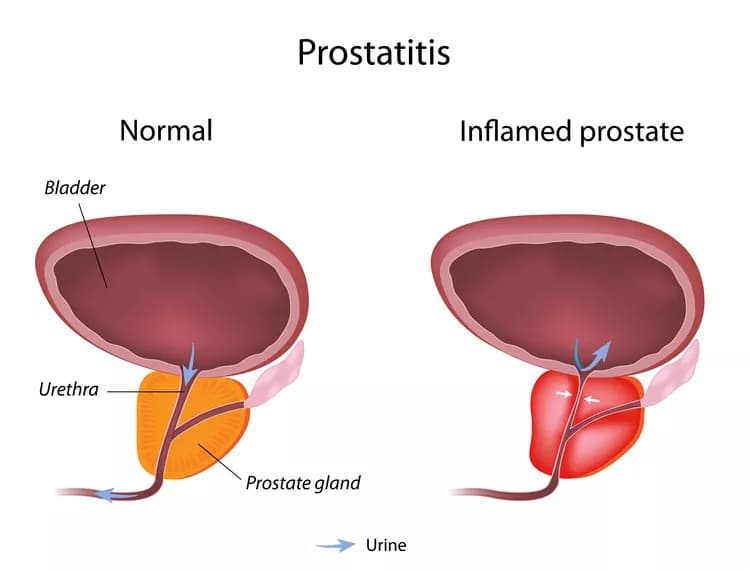
Chronic Prostate Inflammation Could Nearly Double The Risk Of Prostate Cancer
A new study at the Johns Hopkins Kimmel Cancer Center suggests that compared to men with no signs, men with chronic inflammation in non-cancerous prostate tissue may have nearly double the risk of developing prostate cancer.
Published in the journal Cancer Epidemiology, Biomarkers & Prevention, the study also found that the association between chronic prostate inflammation, or prostatitis, and prostate cancer may be even stronger in men with high grade cancers, or individuals with a Gleason score between 7 and 10. The Gleason score is measured by observing at cancer cells under a microscope. A higher number in the Gleason score means there are more abnormal cells and the cancer is growing faster.
According to the American Cancer Society, prostate cancer remains the second most common cancer in men in the United States, with 1 in 7 men being diagnosed with the disease during his lifetime. Cancer.gov reports 233,000 new cases in the United States each year.
“What we’ve shown in this observational study is a clear association between prostate inflammation and prostate cancer, although we can’t prove that inflammation is a cause of prostate cancer,” said Elizabeth A. Platz, Sc.D., M.P.H., a professor in the Department of Epidemiology at the Johns Hopkins University Bloomberg School of Public Health and the School of Medicine.
Professor Platz and her colleagues analyzed samples taken from men aged 55 and older participating in the Southwest Oncology Group’s Prostate Cancer Prevention Trial, a test to compare men taking the drug finasteride with men taking placebo, to determine if the drug could prevent prostate cancer.
The researchers were fascinated in the prevention trial’s placebo group, and with the fact that all participants underwent biopsies at the end of the trial, even if they were not needed.
This was important because previous investigations into links between prostate inflammation and cancer have sampled tissue from men who underwent biopsy for a reason. For example, if they had higher prostate specific antigen (PSA). Thus the team wanted to rule out any bias that might be introduced in this way.
Platz says, “Because inflammation makes PSA levels go up, men with inflammation are more likely to have higher PSA and, with a rising PSA, they're more likely to be biopsied. By doing more biopsies on these men, prostate cancer is more likely to be detected, even if inflammation is not a cause of prostate cancer.”
The data from the placebo allowed the team to examine non-cancerous tissue samples from biopsies of 191 men with prostate cancer and 209 men without prostate cancer. They studied the samples for the presence and amount of immune cells that indicate inflammation.
The researchers found that at least one tissue sample with signs of inflammation in 86.2 percent of the men with prostate cancer compared with 78.2 percent of the men without cancer. This means that individuals with chronic inflammation had 1.78 times higher odds of having prostate cancer, and 2.24 higher odds of aggressive cancer (high-grade disease, with Gleason scores between 7 and 10). These odds were the same even in men whose PSA levels were low at the time of their biopsies.
“We knew going into this research that inflammation in the prostate is very common in men who have biopsies because of the higher PSA levels and other indicators of prostate cancer, but we did not anticipate the high prevalence of prostate inflammation in men who didn't have an indication for biopsy” co-author Angelo M. De Marzo, a professor of Pathology at Johns Hopkins' School of Medicine and associate director of cancer research pathology says.
This research is hoped to investigate the possible links between a history of sexually transmitted diseases and prostate inflammation.
Additional Reference:
Related Articles
Test Your Knowledge
Asked by users
Related Centers
Related Specialties
Related Physicians
Related Procedures
Related Resources
Join DoveHubs
and connect with fellow professionals

0 Comments
Please log in to post a comment.